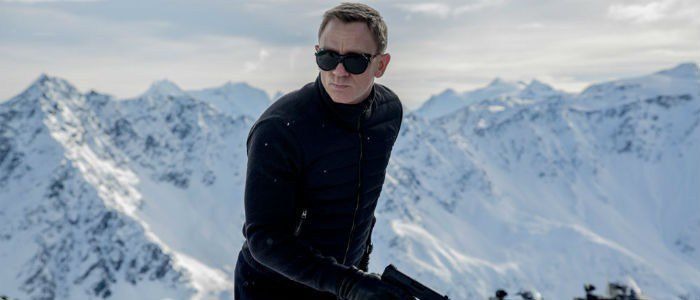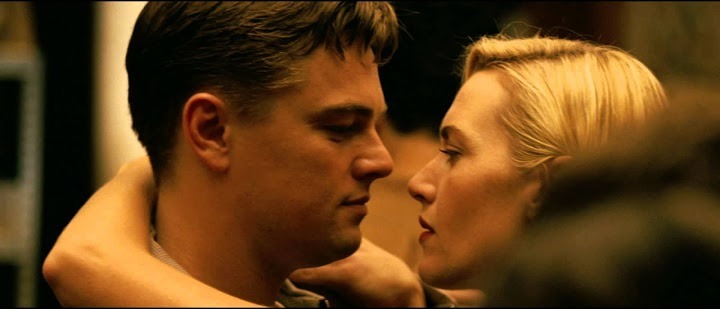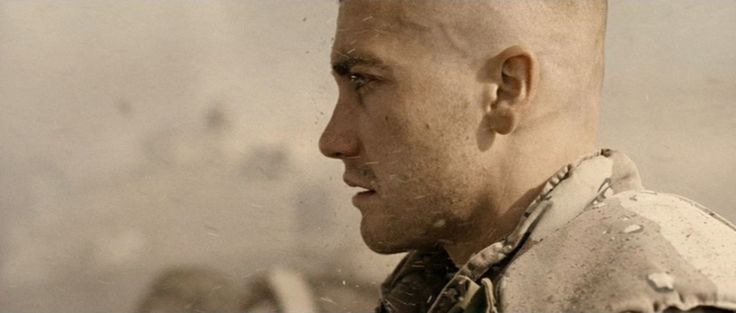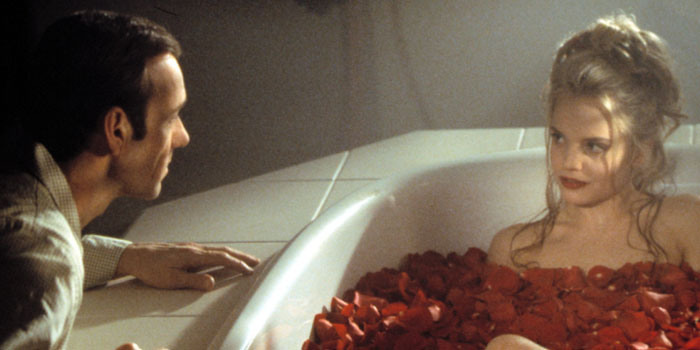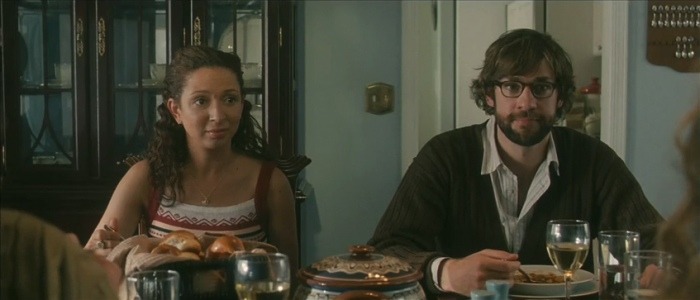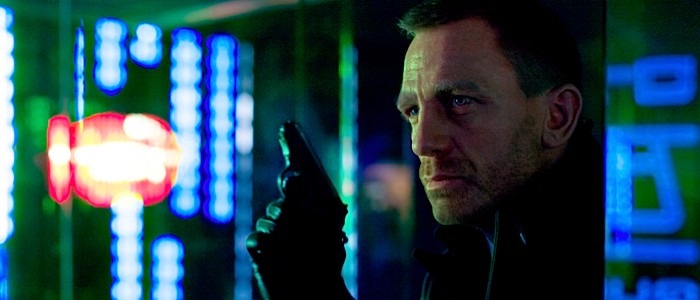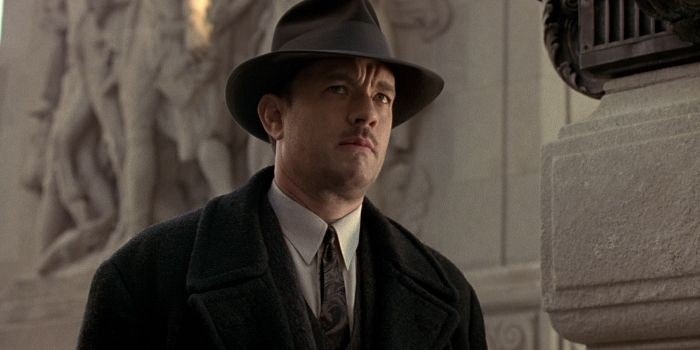We're Not Like Everyone Else: Ranking The Films Of Sam Mendes
Director Sam Mendes had plenty of experience in theater before directing his first film. The skills he acquired from the stage, like his eye for performances, was evident even in his debut feature American Beauty, which won him his first Oscar. Even when a film from the director doesn't fully come together, the performances are still worth talking about.
After the jump, read our ranking of Sam Mendes' films.
The English director has made a gangster film, two Bond sequels, and an unconventional war movie. While Mendes' filmography is diverse, his characters and films are often defined by self-loathing or self-reflection. The protagonists he follows are generally at a crossroads, asking questions we all think about: "What's the point of it all?" "Am I a good person?" "Am I like everyone else?" That last question, in particular, plays a major part in his dramas. The couples in American Beauty, Revolutionary Road, and Away We Go are terrified of turning into their neighbors or friends.
Even James Bond questions if he's no different than the killers in SPECTRE. It's a forced conflict — why doesn't anyone mention the fact the government assassin kills bad people? – and it's one of the many reasons why Spectre is the director's most frustrating film.
Let's look back at all the Sam Mendes films ranked below:
7. Spectre (2015)
This is by no means a bad movie, let alone a bad Bond movie. There are plenty of exciting scenes in Spectre. Funnily enough, the most thrilling action sequence is the film's smallest one: Bond and Mr. Hinx (Dave Bautista) duking it on the train, with no music playing. It's a messy, visceral set piece that, admittedly, ends on a weak note. The problem is, the handful of memorable scenes — M (Ralph Fiennes) defending Bond's license to kill, the opening in Mexico City, and the train fight — are overshadowed by the film's excessive bloat, thinly written female characters, a laughable villain (his motivation is just ridiculous, and eerily similar to the villain's motivation in Road to Perdition), and the ending doesn't hold a candle to the emotional impact of Casino Royale and Skyfall. Daniel Craig remains charming as Bond, but there's only so much he can do with this script.
Also, it's refreshing to see Bond sleep with a woman his own age, but it's not so great to see that woman, played by Monica Bellucci, only used for exposition and eye candy.
6. Revolutionary Road (2008)
The most inconsistent film from the director. The Richard Yates adaptation is often louder than Mendes' Bond pictures. The opening of Revolutionary Road starts at 11, with the unhappy married couple, played by Leonardo DiCaprio and Kate Winslet, immediately at each other's throats. The argument — and the many, many shouting matches that follow — is hard to watch, and not for the intended reason. It's an oddly cold and calculated picture, with Thomas Newman's intrusive score pushing your buttons far too often.
However, there are two performances that somewhat redeem Revolutionary Road. Michael Shannon (Take Shelter) shakes things up and brings some energy and levity to the film. It's almost too good of a performance, because it makes you want to watch another movie about his brutally honest character. DiCaprio adds nuance to the role of Frank Wheeler, a character at odds with himself. The manchild is living in fear, which Justin Haythe's script frequently points out, but DiCaprio makes that fear understandable: he wants to feel alive and not go down the path his forgotten father did, but he also wants the perfect home and attentive housewife. There's plenty to appreciate and enjoy in Revolutionary Road, just enough to counteract the array of problems.
5. Jarhead (2005)
The war Anthony Swofford (Jake Gyllenhaal) experiences isn't the same as WWII or Vietnam. The soldier leaves his home and his girlfriend, and for what? To watch a videotape of another soldier's wife cheating on him, or to not take a single shot in combat? These soldiers protect oil, take part in meaningless arguments, and, as Swofford points out, masturbate a lot. Jarhead is a different kind of war movie. The characters experience more conflict at home in the end than they do on the battlefield.
The rifle remains a part of Swofford, despite the fact he never gets to use it in combat. The characters only sees glimpses of war, but it still changes some of these men, especially Alan Troy (Peter Sarsgaard). Sarsgaard, in particular, is fantastic. The film builds towards that character's emotional breakdown, and it's a powerful scene. Sarsgaard doesn't hold back, bawling and screaming, as the character doesn't get his one chance to do what he's been dreaming about for his whole life.
4. American Beauty (1999)
This drama has faced its share of blacklash and criticism since winning Best Picture at the Oscars. Is it deserved? Not really, even though not all of American Beauty holds up. Alan Ball (True Blood) hasn't always been the subtlest writer. The arty kid who sees beauty in bags floating around is a tad laughable, but that also sounds like something an awkward, pretentious teenager would actually think. As broad as American Beauty can be, Mendes and the cast humanize potential caricatures.
The real heart and soul of American Beauty is Kevin Spacey, in a role originally offered to Tom Hanks. Walter (Spacey) faces a midlife crisis, surrounded by "stuff" and a family he can't relate to. He decides to start not giving a shit, acting on his most childish impulses. When he sees the true beauty of his life at the end, it's a touching, if obvious, realization. Spacey is both funny and sad as Walter, and he's surrounded by an excellent supporting cast.
Did American Beauty deserve to win Best Picture in 1999? Probably not, but who cares? The great movies of 1999 have stood the test of time without an Oscar. American Beauty, flaws and all, is still a very, very good movie.
3. Away We Go (2009)
The Sam Mendes film not enough people talk about. The director has shown unhealthy or destructive marriages in his other work, but the relationship in Away We Go is refreshingly sweet. The couple, played by Maya Rudolph and John Krasinski, has their disagreements and problems, but they're supportive of each other and very much in love. The 30somethings are both excited and nervous to bring a baby in the world, but they worry about whether they're prepared to raise a kid. On their trip to find a new home, they see all kinds of parents, mostly the kind of parents they don't want to become.
Mendes has never followed the most likable characters, but the two leads in Away We Go are absolutely charming. Dave Eggers and Vendela Vida's script is a little too quirky at times, but it's also an extremely funny, sweet, and honest story — reminiscent of a Hal Ashby film (The Last Detail, Harold & Maude). The soundtrack, too, is enchanting, with some soothing tunes from Alex Murdoch.
2. Skyfall (2012)
Any true Bond fan brushes the misfires off their shoulders, because the quality of this franchise is hardly consistent. Fans and general audiences were left disappointed by the coda to Casino Royale, Quantum of Solace, but, for good reason, they fell back in love with Daniel Craig's modern take on the Ian Fleming character with Skyfall. James Bond is a macho icon, but Mendes makes him a vulnerable and haunted hero in this sequel. The Bond film isn't without a sense of humor, though, as the script, co-written by John Logan (Hugo), has a sharp wit. There isn't much room for comedy in Quantum of Solace, but there's plenty of it in Mendes' picture. As seriously as the director takes the character and the personal stakes, this is still a highly entertaining movie.
Yes, Bond does hop in the shower with a former sex slave — which is easily one of the franchise's most tone-deaf moments — and Q (Ben Whishaw) moronically connects Silva's computer to MI6's main network, but those baffling scenes hardly slow Skyfall down. What this Bond pic gets right it really gets right.
And who could forget that opening shot of Bond? What about that silhouetted fight sequence in Shanghai? Bond is cooler and more stylish than he's been since Sean Connery played him, thanks to Mendes and cinematographer Roger Deakins (Sicario).
1. Road to Perdition (2002)
There was zero debate in my mind about placing the gangster drama in the no. 1 spot. Road to Perdition features the anti-Tom Hanks performance. The actor is often relied on for his infectious charm, but we see little of it in this reserved, moving performance. Michael Sullivan (Hanks) knows he's not a good man, and the fact that he sees himself in his son, Michael Sullivan Jr. (Tyler Hoechlin), scares him, as he's concerned his son will follow in his footsteps. Road to Perdition asks, "What makes a good man?" This graphic novel adaptation, scripted by David Self, lets the audience answer that question.
If you're a sucker for father-son movies, it's impossible for the waterworks not to flow while watching Road to Perdition. It's a story filled with both coldness and warmth, beautifully visualized by cinematographer Conrad L. Hall. Mendes is firing on all cylinders behind the camera, and has never been more in control. The director's shot choices, Hall's work, and Thomas Newman's score sync up perfectly, especially in the rainy ambush sequence. Road to Perdition is a magnificent movie.

